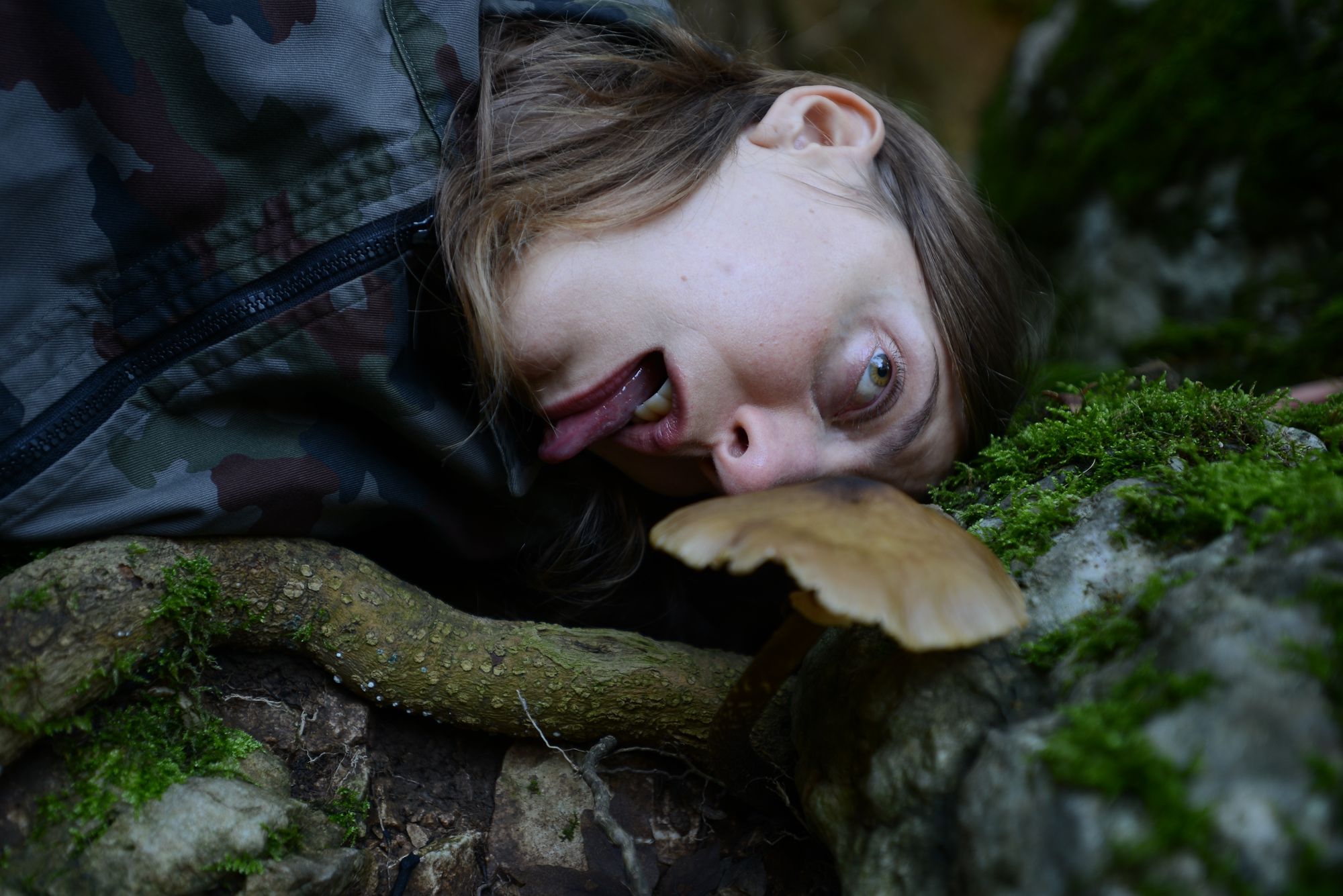ABOUT

Bio
Jatun Risba (they/them) is a migrant transmedia artist from Slovenia. Their work engages with ecofeminist and posthumanist discourses through performance art, conceptual art, relational art, and practices of abjection, détournement, and art intervention. Their practice cultivates interspecies reciprocity by altering and awakening sensory awareness through Vajrayana Buddhist practices and deviant uses of contemporary technologies. Their research explores the essential role and artistic potential of six “life matters” on Earth: air, water, carbon, soil, chlorophyll, and (menstrual) blood and devises experiences and tactics for overcoming the Anthropocene. Their practice evolves along two main trajectories: Arts for Health and Art as Nourishment for the Bodymind. Risba’s art is profoundly informed by their lived experience of radical self-healing from Multiple Sclerosis (2012–2019). They are the founder and co-facilitator of the global Live Art project Be-coming Tree.
As an artist, Jatun has exhibited and performed widely, including at VIRA art.sound gallery in Seoul; Galerija O.K. in Rijeka; Crow's Nest in Baltimore (USA); Schmiede Hallein Festival (2023, 2024); Gigi Rigliaco Gallery in Italy; Studio Alta in Prague; Opens platform in Singapore; Prague Biennale Re-connect festival (2023-25); the Meta.morf 2022 Trondheim Biennale in Norway; the Cloud 9 pavilion at the Bangkok Biennial in 2020; Fabbrica del Vapore in Milan; Kino Šiška, Y Gallery, Kersnikova Institute and Cirkulacija2 in Ljubljana; and Pixxelpoint festival (2008, 2019, 2025). Risba delivered artist talks, lectures and workshops internationally, including at the Academy of Arts in Banská Bystrica (Slovakia); DRHA 2024: Banal Devices at the University of Music and Theatre Munich (Austria); the Akademia Sztuk Pięknych in Wrocław (Poland); the University of the Underground; Goethe University Frankfurt (Germany); the Moving Image Research Lab Montreal (Canada); the University of Strasbourg (France); and the Taboo, Transgression & Transcendence in Art and Science Conference (2020, 2023).
Their research papers and interviews have been published in various online and print publications, including Antennae: The Journal of Nature in Visual Culture, the Body, Space & Technology (BST) Journal, Utsanga.it online magazine, TTT in Art and Science Conference Proceedings, and ecoartspace.org. They received the a-n Artist Bursary in 2019, a fellowship from the ERSTE Foundation in 2020 and the Social Art Award in 2021. Their works are held in the permanent collections of the Artothèque de la Ville de Strasbourg and IoDeposito. Risba holds a BA (Hons) degree from NABA–Nuova Accademia di Belle Arti in Milan (2009), and a PG Cert in Art & Science from Central Saint Martins–University of the Arts London (2020).
Artist statement
My artistic research is inspired by the world’s wisdom traditions, such as Vajrayana Tibetan Buddhism and the pre-Christian nature-worshipping practices of Western Slovenia. It explores unconventional uses of contemporary technologies, including mobile phones, Wi-Fi networks, sensors, and microcomputers. Performative processes function as a vehicle for unveiling the poetry and magic embedded in everyday reality, while seeking to dismantle structures of exploitation and the master/slave binary.
My work is informed by my lived experience of radical self-healing from Multiple Sclerosis (2012-2019) through unleashed dancing in public spaces (“dances of urgency”), guerrilla artistic interventions and a practice of different meditative and bliss-inducing techniques. These practices included clubbing, (self-)hypnosis and erotic expression. Collaboration with human, non-human and more-than-human entities is central to my art. It allows me to challenge and transcend personal echo-chambers for the sake of creating works that expand the view and add flash, weight and layers of complexity to the atomized experiences of the real. Art becomes a tool to spark creative strategies and mind-opening conversations about ethics and ecosocial justice that impact the way of inhabiting our inner, outer and sacred territories.
Another important characteristic of my practice is the cultivation of reciprocity and kinship with all forms of life. This is done by altering & awakening human sensory awareness, through physical and mental training and/or use of technology, based on the realization of the interconnectedness and interdependence of all phenomena. As an artist, researcher and pedagogue, I am firmly rooted in inclusive, accessible practices and strongly believe that the working process is as important as the outcome. I am actively engaged in bridging Art, Science and Spirituality, wherefore each discipline opens the other to more expansive ways of engaging with reality.
Artist Portfolio & CV
Interactive portfolio (January 2025)
Detailed Curriculum Vitae (January 2026)
*+++ photo by Franco G. Livera from the making of the art film 'Salamandra, Salamandra, Salamandra'